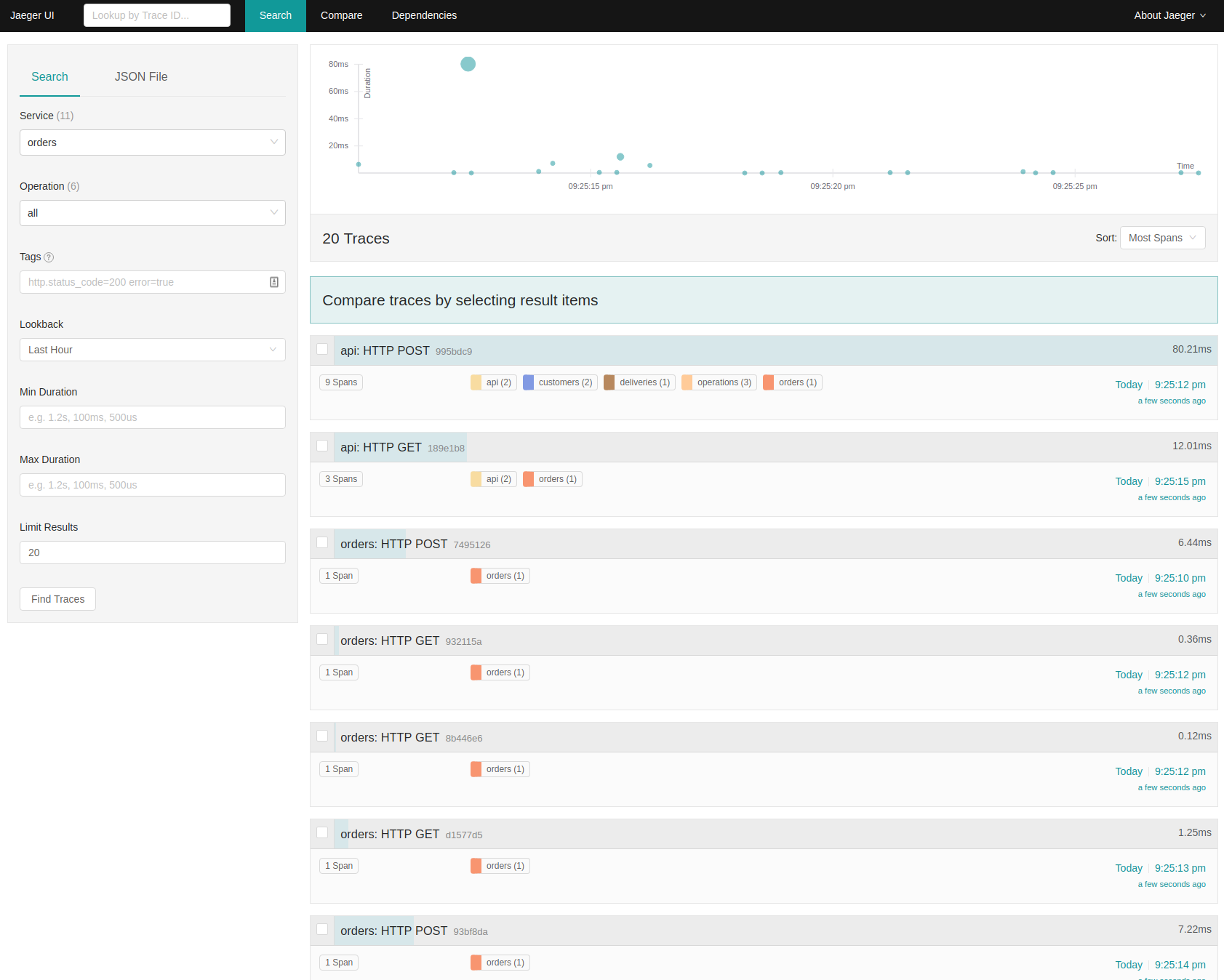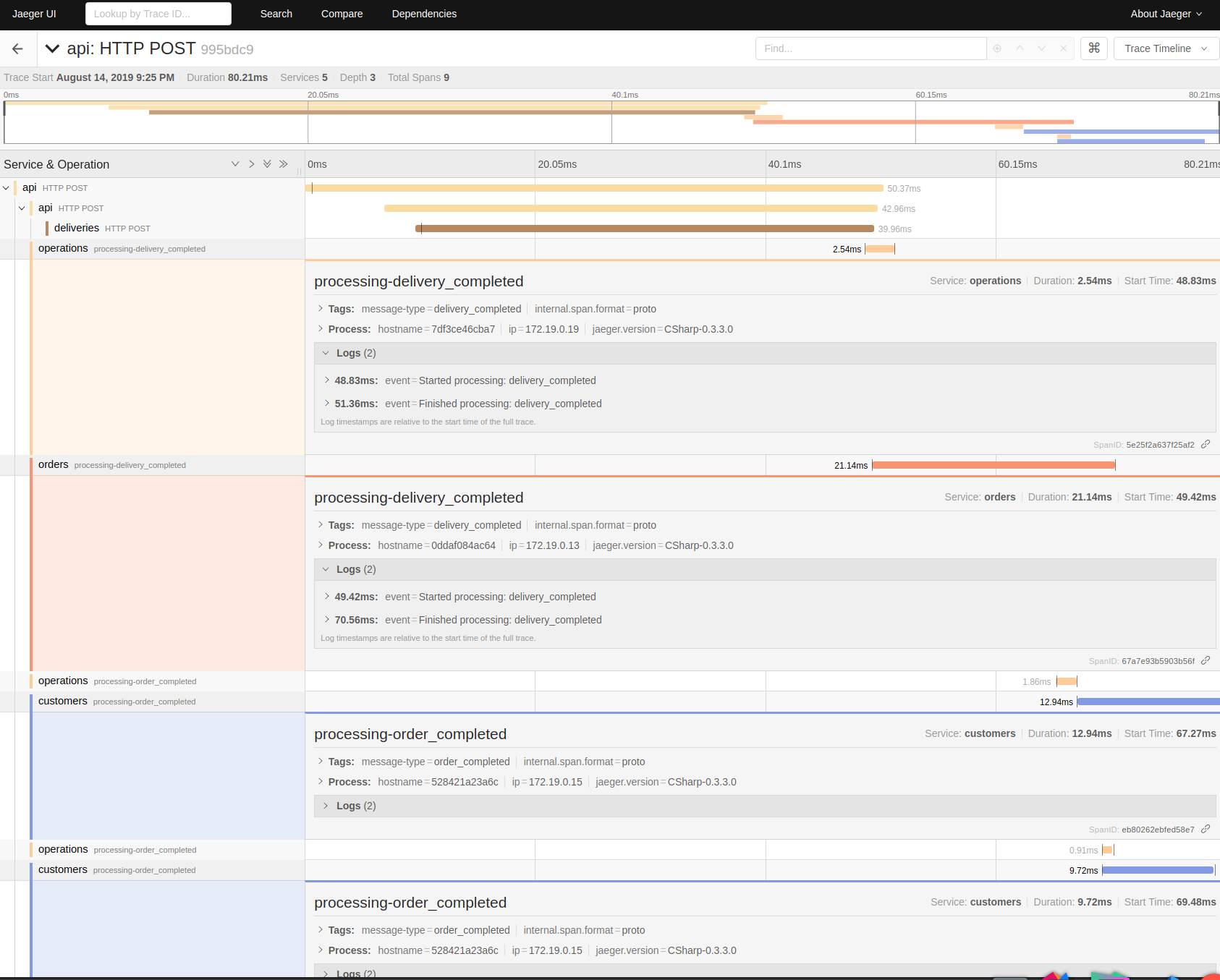Overview
Integrates application with Jaeger (end-to-end distributed tracing) using selected reporter and sampler.


Installation
dotnet add package Convey.Tracing.Jaeger
Dependencies
Open Tracing
Convey does not generate any default spans for your ASP.NET Core applications. However, this can be simply achieved by plugging in Open Tracing:
Installation
dotnet add package OpenTracing
Usage
Enable the instrumentation inside your Startup.cs -> ConfigureServices() by calling AddOpenTracing() method on IServiceCollection:
public void ConfigureServices(this IServiceCollection services)
{
services.AddOpenTracing();
}
Jaeger
Once your application produces spans needed for Jaeger, you need to enable reporting in a way that suits you the most.
Options
enabled- determines whether reporting is enabledserviceName- name of the applciation that’s going to be used in Jaeger query engineudpHost- host part of the Jaeger endpoint (UDP).udpPort- port of the Jaeger endpoint (UDP).maxPacketSize- maximum size of the UDP header packet (by default 0). This is not required.sampler- The allowed values are:const,rateandprobabilistic. For more details about sampling check the official Jaeger Docs.maxTracesPerSecond- determines maximum number of reported traces per second. Required only for rate sampler.samplingRate- determines the percentage of spans to report. Required only for probabilistic sampler.
appsettings.json
"jaeger": {
"enabled": true,
"serviceName": "users",
"udpHost": "localhost",
"udpPort": 6831,
"maxPacketSize": 65000,
"sampler": "const",
"maxTracesPerSecond": 10,
"excludePaths": ["/", "/ping", "/metrics"]
},
Usage
Inside your Startup.cs extend IConveyBuilder with AddJaeger() that will create the ITracer using chosen sampler and reporter:
public IServiceProvider ConfigureServices(this IServiceCollection services)
{
services.AddOpenTracing();
var builder = services.AddConvey()
.AddJaeger();
//other registrations
return builder.Build();
}
Creating custom spans
Once the ITracer got registered in Startup.cs file, you can inject it to any class you want to create custom spans (not provided by Open Tracing) as follows:
public class MyClass
{
private readonly ITracer _tracer;
public MyClass(ITracer tracer)
{
_tracer = tracer;
}
public void MyMethod()
{
using(var scope = BuildScope())
{
var span = scope.Span;
try
{
span.Log("Starting the execution of the code");
///some code
}
catch(Exception ex)
{
span.Log(ex.Message);
span.SetTag(Tags.Error, true);
}
}
}
private IScope BuildScope()
=> _tracer
.BuildSpan("Executing important code")
.StartActive(true);
}